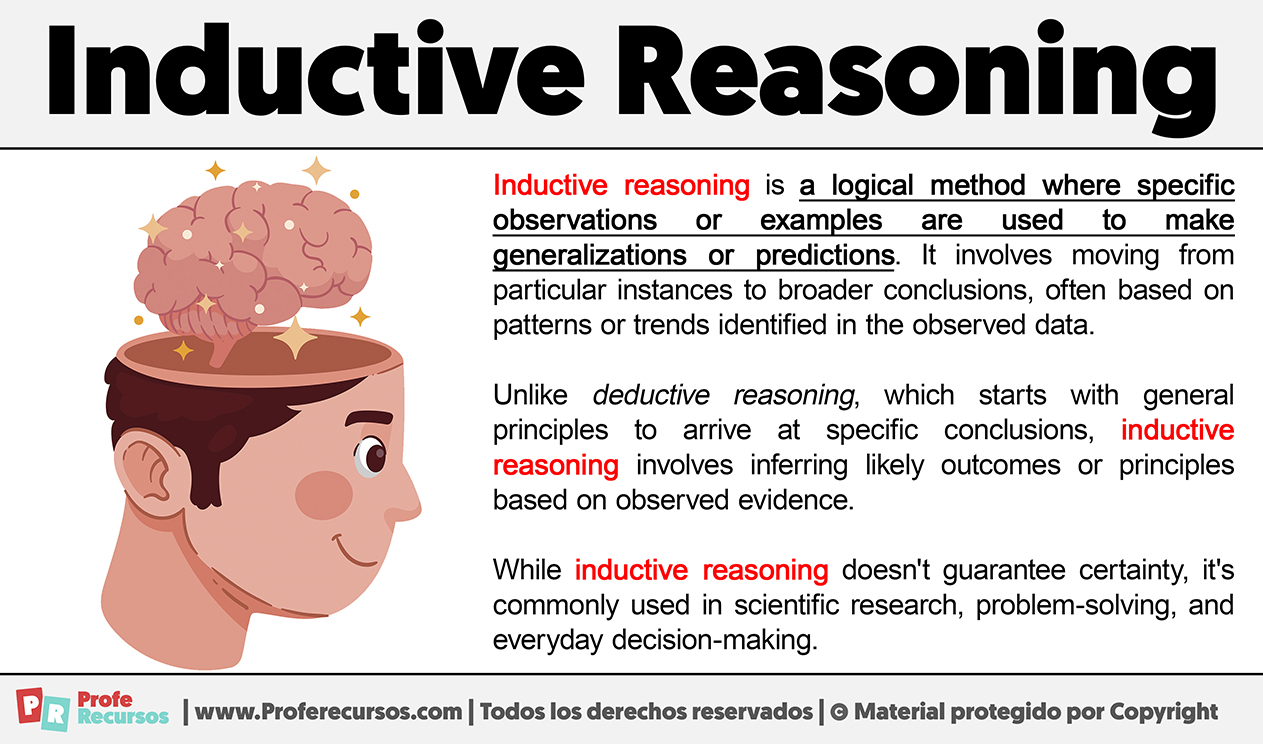Inductive reasoning is a logical method where specific observations or examples are used to make generalizations or predictions. It involves moving from particular instances to broader conclusions, often based on patterns or trends identified in the observed data.
Unlike deductive reasoning, which starts with general principles to arrive at specific conclusions, inductive reasoning involves inferring likely outcomes or principles based on observed evidence.
While inductive reasoning doesn’t guarantee certainty, it’s commonly used in scientific research, problem-solving, and everyday decision-making.


